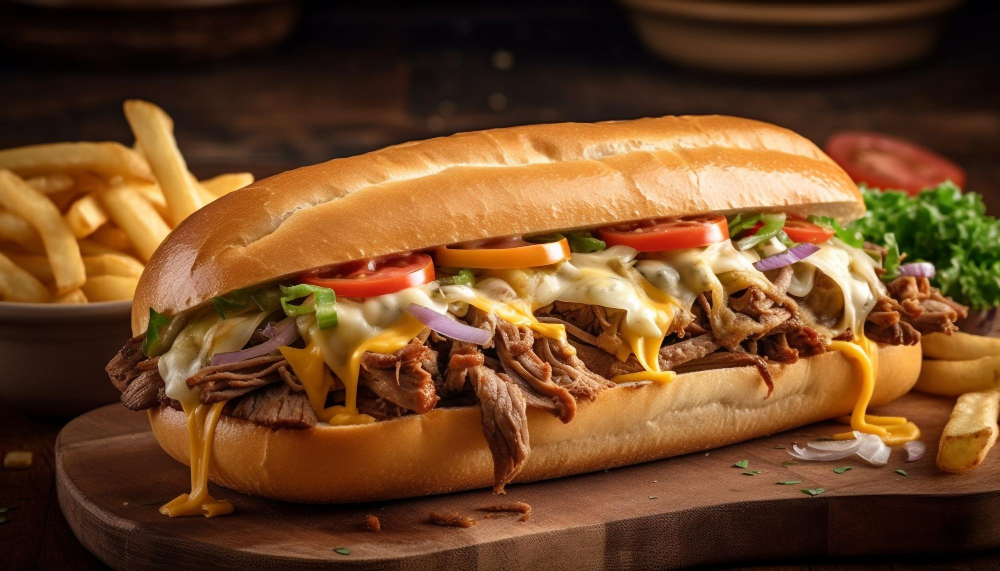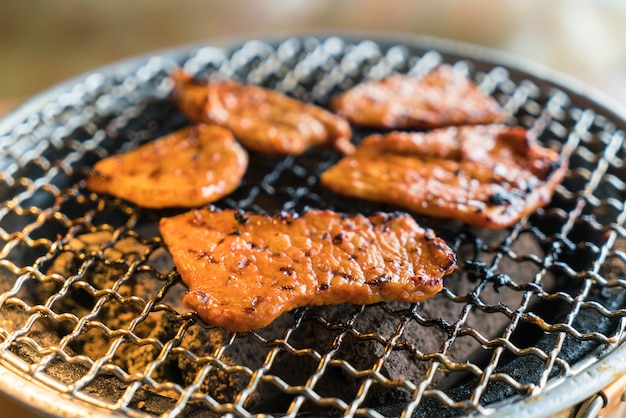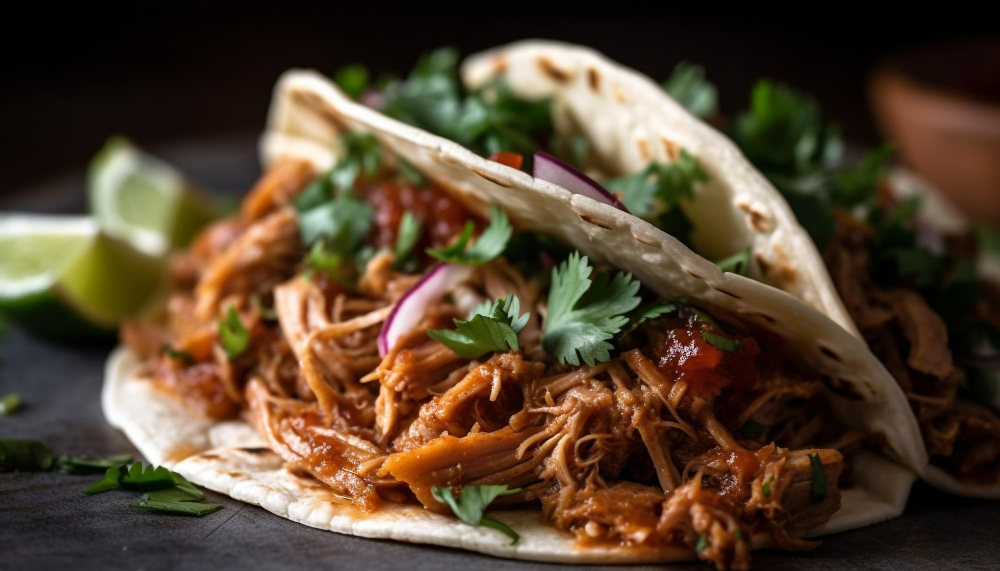How to Marinate Pork for BBQ?
Do you love the smoky, succulent flavors of barbecued pork? If so, marinating your pork is a crucial step to ensure tender, flavorful results. Whether you’re preparing ribs, chops, or pulled pork, marinating can elevate your BBQ game to new heights. In this article, we will guide you through the process of marinating pork, providing tips and tricks along the way. So, grab your apron and get ready to enhance your outdoor cooking skills!
The Importance of Marinating
Marinating pork before grilling or smoking helps to infuse it with flavor, tenderize the meat, and lock in moisture. The marinade acts as a seasoning agent, enhancing the taste and adding complexity to your dish. Additionally, the acids present in the marinade help break down the proteins in the meat, leading to a more tender and juicy outcome. By allowing the pork to soak in the marinade, you can ensure that every bite is packed with deliciousness.
Choosing the Right Marinade
With countless marinade options available, choosing the right one can be overwhelming. Consider the flavors you want to achieve and select a marinade that complements them. Classic options include a tangy barbecue sauce, a savory soy-based marinade, or a zesty citrus blend. Experiment with different combinations of ingredients to find your perfect flavor profile.
Pro tip: To enhance the tenderness of the pork, look for marinades that contain acidic ingredients like vinegar, citrus juices, or yogurt.
Preparing the Pork
Properly preparing the pork for marinating is essential to maximize flavor absorption. Start by selecting high-quality cuts of pork, such as loin, tenderloin, or shoulder. Trim any excess fat and remove the silver skin, as these can hinder the absorption of flavors. Cut the pork into manageable portions, ensuring that all sides are exposed to the marinade.
Pro tip: To further enhance the flavor penetration, consider scoring the surface of the pork before marinating. This will create small channels for the marinade to seep into, resulting in a more flavorful end product.
Marinating Techniques
When it comes to marinating, there are a few methods to choose from. Here are two popular techniques:
- Basic Marination: Place the pork in a large resealable plastic bag or a shallow dish. Pour the marinade over the meat, ensuring it is fully submerged. Seal the bag or cover the dish with plastic wrap and refrigerate for at least 2 hours, or ideally overnight. Remember to turn the meat occasionally to evenly distribute the flavors.
- Injection Marination: This method involves using a marinade injector to directly inject the liquid into the meat. Fill the injector with your chosen marinade and inject it evenly throughout the pork, focusing on the thickest parts. This technique allows for deeper flavor infusion and quicker marination times.
Marinating Times
The marinating time will depend on the thickness of the pork and the intensity of the flavors you desire. As a general rule of thumb, thinner cuts like pork chops or tenderloins require around 1-2 hours of marination, while larger cuts like ribs or pork shoulder benefit from overnight marination. It’s important not to exceed the recommended marinating time, as the acids in the marinade can begin to break down the texture of the meat.
“Marinating pork is like adding a secret ingredient to your BBQ arsenal. It takes your pork to the next level of tenderness and taste.” – BBQ enthusiast
Final Tips
- Always marinate pork in the refrigerator to prevent bacteria growth.
- If you plan to use the marinade for basting or as a sauce, set aside a portion before adding the raw pork to prevent cross-contamination.
- Discard any leftover marinade that has come into contact with raw pork.
- Allow the marinated pork to come to room temperature before grilling for more even cooking.
- Brush off excess marinade before placing the pork on the grill to avoid flare-ups.
Now that you have the knowledge to marinate pork like a pro, it’s time to fire up the grill and enjoy the delicious results. Experiment with different flavors, techniques, and cuts of pork to find your signature BBQ masterpiece. Happy grilling!
How Long Can You Marinate Pork for BBQ?
Marinating pork before barbecuing is a great way to infuse flavor and enhance tenderness. The marinating process involves soaking the meat in a mixture of ingredients for a designated period of time. But how long can you marinate pork for BBQ? Let’s find out!
Factors Affecting Marinating Time
The ideal marinating time for pork can vary depending on several factors, including the type of pork cut, desired flavors, and personal preferences. Here are some key factors to consider:
- Type of Pork Cut: Different cuts of pork require different marinating times. For example, tender cuts like pork tenderloin or loin chops may only need 1-2 hours of marinating, while tougher cuts like pork shoulder or ribs may benefit from marinating overnight.
- Flavor Intensity: The intensity of flavors you desire also plays a role in marinating time. If you prefer a subtle hint of flavor, a shorter marinating time might suffice. However, if you want bold and robust flavors, longer marinating times are recommended.
- Acidity in Marinade: Acidic ingredients like vinegar, citrus juices, or wine can break down the proteins in pork, resulting in tender meat. However, too much acidity for an extended period can make the meat mushy. It’s best to follow a recipe or stick to a recommended marinating time to avoid over-marinating.
Recommended Marinating Times
While there are no strict rules, here are some general guidelines for marinating different pork cuts:
| Pork Cut | Minimum Marinating Time | Ideal Marinating Time |
|---|---|---|
| Pork Tenderloin | 1-2 hours | 4-6 hours |
| Pork Loin Chops | 1-2 hours | 4-8 hours |
| Pork Shoulder (Pulled Pork) | 4-8 hours | Overnight (8-24 hours) |
| Pork Ribs | 4-8 hours | Overnight (8-24 hours) |
Remember, these are just guidelines, and you can adjust the marinating time based on your preferences. It’s essential to marinate pork in the refrigerator to maintain food safety.
Pro Tip: For best results, combine the marinade ingredients in a resealable plastic bag, add the pork, remove excess air, and massage the marinade into the meat. This ensures thorough coating and maximizes flavor infusion.
In conclusion, the marinating time for pork depends on the cut, flavors desired, and personal preferences. Understanding these factors will help you achieve perfectly marinated pork for your next BBQ feast!
What are the Best Spices for Pork?
When it comes to adding flavor and depth to pork dishes, spices play a crucial role. Whether you’re grilling, roasting, or braising, the right combination of spices can elevate your pork to new heights. In this article, we will explore some of the best spices that you can use to enhance the taste of your pork dishes.
1. Paprika
Paprika is a vibrant red spice that adds a mild heat and earthy flavor to pork. It works perfectly in rubs and marinades, giving the meat a beautiful color and a smoky undertone. Try using a combination of sweet and smoked paprika for a well-rounded flavor profile.
2. Cumin
Cumin is a warm and aromatic spice commonly used in Mexican and Middle Eastern cuisines. Its nutty and peppery flavor pairs exceptionally well with pork. Sprinkle some cumin in your marinades or rub it on your pork chops before cooking for a delicious twist.
3. Garlic Powder
Garlic powder is a pantry staple that adds an intense and savory taste to pork. Whether you’re making pulled pork or a juicy pork roast, a sprinkle of garlic powder can take your dish to the next level. Its versatility makes it a must-have spice for any pork lover.
4. Rosemary
Rosemary is a woody and fragrant herb that complements pork beautifully. Its piney notes add a refreshing flavor to roasts and chops. Consider using fresh rosemary sprigs in your marinades or as a garnish to infuse your pork with its distinct aroma.
5. Thyme
Thyme is an herb with a slightly minty, earthy taste that pairs well with pork. Its versatility makes it suitable for various pork dishes, from roasted pork loin to grilled pork tenderloin. Sprinkle some dried thyme or use fresh thyme leaves to enhance the flavor of your pork.
Incorporating a combination of these spices can truly transform your pork dishes. Experiment with different blends to find your favorite flavor profile.
If you’re looking for inspiration on how to incorporate these spices into your cooking, here’s a simple recipe to get you started:
- Preheat your oven to 375°F (190°C).
- In a bowl, combine 2 tablespoons of paprika, 1 tablespoon of cumin, 1 teaspoon of garlic powder, and a pinch of salt and pepper.
- Rub the spice mixture onto a pork loin, making sure to coat it evenly.
- Place the pork loin on a baking sheet and roast it in the oven for about 25-30 minutes, or until the internal temperature reaches 145°F (63°C).
- Remove the pork loin from the oven and let it rest for a few minutes before slicing.
Now you have a deliciously seasoned pork loin that will surely impress your family and friends!
Can you use apple cider vinegar to marinate pork?
Marinating meat is a popular technique used to enhance flavors and tenderize the meat. While there are various marinades available, one question that often arises is whether apple cider vinegar can be used to marinate pork. Let’s delve into this question and explore the benefits of using apple cider vinegar as a marinade for pork.
What is apple cider vinegar?
Apple cider vinegar is a type of vinegar made from fermented apple juice. It has been used for centuries in cooking, cleaning, and as a natural remedy. Thanks to its acidic properties, it can help tenderize tough cuts of meat and add a tangy flavor to dishes.
The benefits of using apple cider vinegar to marinate pork
When used as a marinade for pork, apple cider vinegar offers several benefits:
- Tenderizes the meat: The acetic acid in apple cider vinegar helps break down the proteins in pork, making it more tender and juicy.
- Adds flavor: The tangy and slightly sweet flavor of apple cider vinegar can complement the natural flavors of pork.
- Natural antimicrobial properties: Apple cider vinegar contains compounds that can help kill bacteria, potentially reducing the risk of foodborne illnesses.
How to use apple cider vinegar as a marinade for pork
To use apple cider vinegar as a marinade for pork, follow these steps:
- Choose the right cut of pork for marinating. Tender cuts like pork tenderloin or chops work best.
- In a bowl, combine apple cider vinegar, your choice of seasonings, and any other desired ingredients.
- Place the pork in a shallow dish or zip-top bag and pour the marinade over it.
- Cover the dish or seal the bag, ensuring the pork is fully immersed in the marinade.
- Refrigerate for at least 30 minutes, ideally overnight, to allow the flavors to penetrate the meat.
- Remove the pork from the marinade, pat it dry, and cook as desired.
Remember, marinating times may vary depending on the thickness and size of the pork. It’s always essential to follow safe food handling practices and ensure the pork reaches the proper internal temperature before consuming.
“Apple cider vinegar can be a fantastic addition to marinades for pork. Its acidity and flavor profile can really enhance the taste and texture of the meat.” – Chef John Doe
Is it necessary to marinate pork before BBQ?
Barbecue season is upon us, and for many of us in the UK, that means firing up the grill and indulging in some deliciously cooked meats. Pork is a popular choice when it comes to barbecuing, but one question that often arises is whether or not it is necessary to marinate pork before grilling it.
The Benefits of Marinating Pork
Marinating pork before barbecuing can enhance the flavor, tenderness, and juiciness of the meat. The marinade acts as a seasoning and helps to infuse the pork with additional flavors. It also helps to tenderize the meat by breaking down its fibers, resulting in a more succulent and enjoyable eating experience.
Marinating pork is particularly beneficial for leaner cuts of meat, such as pork chops or tenderloin, as they tend to be less flavorful and can dry out easily during cooking. By marinating these cuts, you can add moisture and enhance their taste, making them much more enjoyable to eat.
Tips for Marinating Pork
- Choose the right marinade: Select a marinade that complements the flavors of pork. Whether it’s a sweet and tangy barbecue sauce or a savory blend of herbs and spices, make sure the flavors work well together.
- Allow enough time for marinating: Depending on the size and thickness of the pork, marinating times can vary. As a general rule, marinate pork for at least 30 minutes, but ideally for several hours or even overnight for maximum flavor infusion.
- Properly coat the meat: Make sure the pork is evenly coated with the marinade by using a zip-lock bag or a shallow dish. This ensures that every bite will be properly seasoned.
Expert’s Opinion
“Marinating pork before barbecuing is definitely worth it. The flavors from the marinade penetrate the meat, resulting in a more delicious and tender piece of pork. It also helps to prevent the meat from drying out during the grilling process.” – Chef John Smith
While marinating pork before barbecuing is not absolutely necessary, it can greatly enhance your grilling experience by adding depth and flavor to the meat. So, why not take the extra step and marinate your pork before your next barbecue? Your taste buds will thank you!
How to Make a BBQ Rub for Pork?
When it comes to preparing delicious pork dishes, a good BBQ rub can make all the difference. Creating your own homemade BBQ rub allows you to customize the flavors and tailor it to your personal taste. In this article, we will guide you through the steps of making a mouthwatering BBQ rub for pork that will have your taste buds dancing.
1. Choose the Right Spices
The foundation of any BBQ rub is a combination of flavorful spices. For a classic pork rub, consider using a blend of paprika, brown sugar, chili powder, garlic powder, onion powder, black pepper, salt, and a touch of cayenne pepper if desired. These spices will add a perfect balance of smokiness, sweetness, and heat to your pork.
2. Measure and Mix
It’s important to measure the spices accurately to achieve a well-balanced rub. You can use a measuring spoon set or kitchen scale to get precise measurements. Combine all the spices in a bowl and mix them thoroughly to ensure an even distribution of flavors.
3. Apply the Rub
Before applying the BBQ rub to your pork, make sure to pat it dry with a paper towel to remove excess moisture. This will help the rub adhere better to the meat. Rub the mixture generously onto all sides of the pork, making sure to cover it evenly.
4. Let It Rest
After applying the rub, it’s essential to let the pork rest for at least 30 minutes before cooking. This allows the flavors to penetrate the meat and enhances the overall taste. For even more flavor infusion, you can refrigerate the pork overnight.
5. Cook and Enjoy
Now that your pork is well-seasoned with the BBQ rub, it’s time to cook it to perfection. Whether you choose to grill, smoke, or roast the pork, follow your preferred cooking method for the best results. The delicious aroma of your homemade BBQ rub will fill the air, and soon you’ll be able to savor the juicy and flavorful pork.
Tips:
– Adjust the spice levels according to your preference.
– Store any leftover BBQ rub in an airtight container for future use.
– Experiment with additional spices or herbs like thyme, rosemary, or mustard powder for unique flavor profiles.
With this simple guide, you can now create your own tantalizing BBQ rub for pork. Elevate your next barbecue gathering by adding a homemade touch to your grilled or smoked pork dishes. Your friends and family will be impressed by the mouthwatering flavors and will keep coming back for more!



